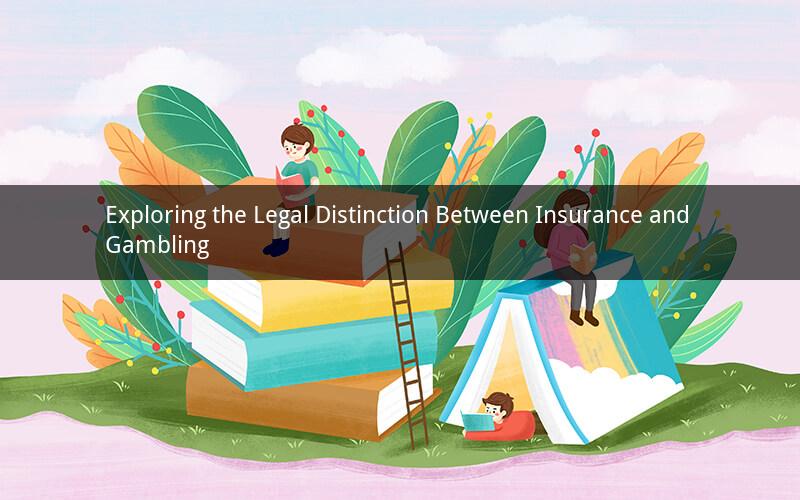
The distinction between insurance and gambling, though seemingly distinct, remains a complex legal matter. Insurance is designed to protect individuals against unforeseen events, whereas gambling involves risking money on an uncertain outcome. This article delves into the legal frameworks that define these two concepts and highlights the key differences between them.
Understanding the Legal Framework
The law distinguishes between insurance and gambling based on several fundamental principles. These principles are vital in ensuring that the legal and ethical frameworks surrounding each practice are respected. Below, we explore some of these principles in detail.
1. Purpose of the Contract
One of the primary factors that differentiate insurance from gambling is the purpose of the contract. Insurance is a contract between an insurer and an insured, where the insurer agrees to provide financial compensation to the insured in the event of a covered loss. On the other hand, gambling involves a contract where participants wager money on an uncertain outcome, with the goal of winning more money than they originally wagered.
2. Intent of the Parties
The intent of the parties involved is another crucial aspect that distinguishes insurance from gambling. In insurance, the parties intend to provide protection against a potential loss. Conversely, in gambling, the primary intent is to win money, regardless of the risk involved.
3. Probability of Loss
Insurance is based on the probability of a loss occurring. Insurance companies use statistical data to determine the likelihood of specific events happening and price their policies accordingly. In contrast, gambling involves unpredictable outcomes, and the probability of winning is often unknown.
4. Compensation Structure
Insurance contracts typically provide a fixed compensation amount to the insured in the event of a covered loss. This compensation is predetermined and is intended to cover the insured's financial loss. In gambling, the outcome is uncertain, and the potential winnings vary depending on the odds and the amount of money wagered.
5. Regulation
Insurance is heavily regulated to protect consumers and ensure the financial stability of insurance companies. Gambling, on the other hand, is regulated to prevent fraud, money laundering, and other illegal activities. The extent of regulation can vary depending on the jurisdiction.
Key Differences Between Insurance and Gambling
1. Purpose
Insurance is primarily intended to provide financial protection against unforeseen events, while gambling is aimed at entertainment and the possibility of winning money.
2. Intent
Insurance involves a desire to mitigate financial risk, whereas gambling involves a desire to win money without considering the potential for financial loss.
3. Probability of Loss
Insurance is based on the probability of a loss occurring, while gambling involves unpredictable outcomes with an uncertain probability of winning.
4. Compensation
Insurance provides a predetermined compensation amount to the insured in the event of a covered loss, whereas gambling's potential winnings are unknown and can vary greatly.
5. Regulation
Insurance is subject to stringent regulations, while gambling is subject to varying degrees of regulation depending on the jurisdiction.
FAQs on the Legal Distinction Between Insurance and Gambling
1. Can a gambling contract be classified as an insurance contract?
Answer: Generally, no. The primary purpose and intent of the parties involved are distinct, with gambling focusing on the possibility of winning money and insurance focusing on financial protection against losses.
2. Can insurance cover gambling losses?
Answer: No, insurance is designed to cover financial losses due to unforeseen events, not to compensate for gambling losses.
3. Is insurance always required for a specific outcome?
Answer: No, insurance is an optional contract that individuals and businesses can choose to purchase based on their risk tolerance and financial needs.
4. Can a person be prosecuted for operating an unlicensed gambling business?
Answer: Yes, operating an unlicensed gambling business can be illegal, depending on the jurisdiction and the specific laws in place.
5. Can a person be denied insurance coverage if they engage in gambling activities?
Answer: Yes, insurance companies may have clauses in their policies that exclude coverage for losses related to gambling or other illegal activities.
In conclusion, the legal distinction between insurance and gambling is rooted in the purpose, intent, probability of loss, compensation structure, and regulation surrounding each practice. Understanding these differences is crucial in ensuring that individuals and businesses adhere to the legal frameworks that govern these activities.